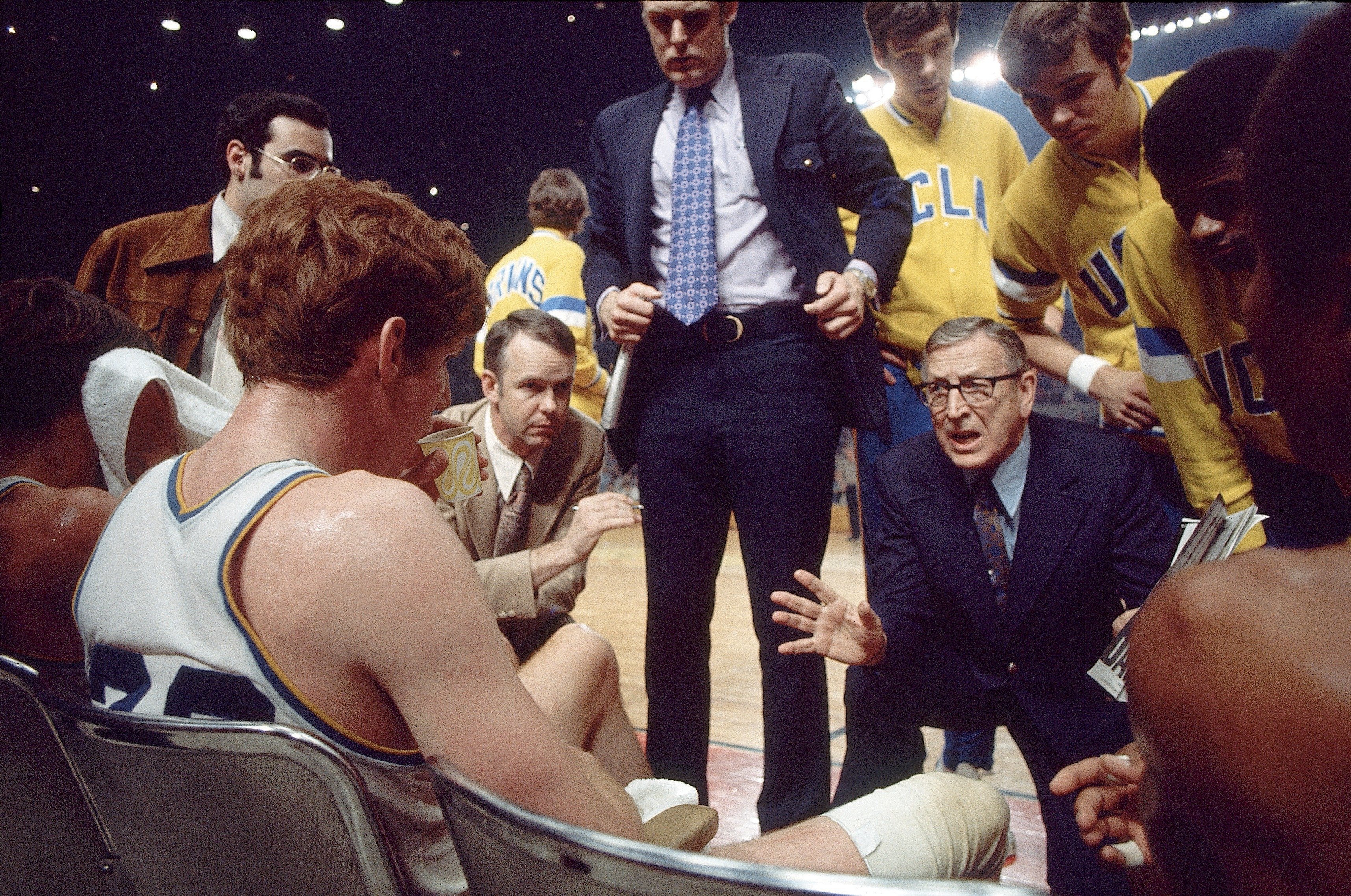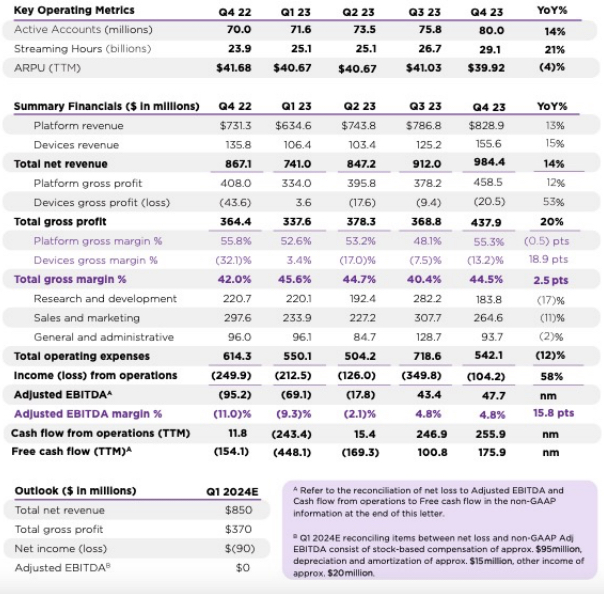
The operator arrives early so as to get the lay of the land. He surveys his vantage and where he presumes his target(s) will first appear within his sites. The operator removes his weapon from its supple leather case, the deadly device's cold steel exterior shimmering slightly amid the dimmed lighting. He assembles and enables the weapon, fixating its blinking cursor on his target. There has been no discussion of failure or contingency planning for it. The client is far too fussy. David Bloom, a professional media trade columnist, goes to work.
DANIEL FRANKEL: Happy Friday, Big D. Tremendous Super Bowl pick last week when you predicted the Chiefs winning 25-22, my friend. Hope you had money on that bet. As I get ready to travel north straight into the storm next week, listening not so voluntarily to a barrage of my sullen teenager's country-music playlist as he embarks on yet another round of Division II/III athletic meet-and-greets, I'm a bit baffled by the so-called "Spulu." With pay TV operators and the U.S. Justice Department pushing back on the joint streaming venture, and Roger Goodell cheesed off that he wasn't brought into the loop sooner, it doesn't appear as though Disney, Fox and Warners thought this all the way through. In fact, it feels like it could possibly not even happen. And yes, I suspect Conroe, Texas' own Parker McCollum will be played over and over during our 460-mile journey.
DAVID BLOOM: Perhaps you can slide said sullen teen toward the Americana end of country’s spectrum, where Wilco, Kasey Musgraves, Miranda Lambert, The Band, Drive-By Truckers, Steve Earle, Luke Combs’ Fast Car, Mickey Guyton, and the particularly sublime Jason Isbell roost. That could help the miles ease by, minus the arena-sized bro energy.
Speaking of easing by, that must be what Bob Iger et al were trying to do with their content-free, secrecy-slathered announcement of a sports-focused skinny bundle. The complaints about “Spulu” keep spewing, from many directions, including those deeply surprised league partners, which seems bad. I was struck by suggestions from analyst Rich Greenfield and others that even if Spulu launches, (a big if), it likely won’t survive long. He said, “... bundling Disney Duo, Max, Peacock and Paramount Plus with the new sports-focused bundle likely implies a consumer should just stay with the big MVPD/vMVPD bundle. Maybe the point is actually to help illustrate the price/value benefits of the bigger bundle?”

Iger said the sports bundle is “very low risk” for Disney’s bottom line and that Disney will get paid full boat regardless. That seems ... optimistic, like many Iger pronouncements on streaming economics. Fox’s Lachlan Murdoch voiced similar language. Maybe they know something we don’t, but the past five years suggest otherwise. The announcement’s handling and timing still feel like it was a red herring designed to strip Nelson Peltz of campaign positions in the looming board proxy battle, not an actual sustainable business proposal.
FRANKEL: I'll tell you who had an actual business proposal this past week -- Jon Stewart. I think a lot of folks, particularly on the left, but some on the right, too, confused his Monday-night return to The Daily Show as being both-sides-ist. (Or, "balanced," if you're one of those folks buying gold basketball shoes these days from Donald Trump.) I think he's still very much on whatever partition Trump isn't. I just think he's part of a growing list of folks in progressive media, journalists Ezra Klein and Maureen Dowd included, who are on a mission to replace Joe Biden, who they see as a great president but now longer a capable campaigner. In fact, I wouldn't expect Stewart to be still doing this past Nov. 5. I think this is a mission for him, not a continuance of his television career.
BLOOM: It is, as Stewart's Daily Show colleagues repeatedly pointed out, amusing that an old guy who left a great job and came back because he can’t let go is mocking two other old guys, one of whom got fired and wants to come back, though sounding rather unhinged as he does so. The other old guy still has the job and doesn't want to give it up, doing perfectly good work amid rampant chaos and the unrealistic yearnings of Stewart and many in The Daily Show target audience. At this rate, Stewart's next episode will make fun of Bob Iger, an old guy who came back, etc., etc. In fact, Stewart could devote a whole season to mocking people who ignore Thomas Wolfe: "You can't go back home to your family, back home to your childhood ... back home to a young man's dreams of glory and of fame ... back home to places in the country, back home to the old forms and systems of things which once seemed everlasting, but which are changing all the time -- back home to the escapes of Time and Memory.” We could apply this not just to Stewart, Trump, Biden (sort of), and Iger, but also to the three old guys waging a proxy battle against Iger and Disney: Nelson Peltz, Jay Rasulo and Ike Perlmutter.
They want Disney to go back to 2015, when ESPN was a gigantic cash cow, no one in Hollywood cared about streaming, and cord cutters weren’t slashing the cable bundle. Perhaps Stewart also should take on what’s happening with Comedy Central’s parent company, Paramount Global, and the latest unsurprising news that it held talks with Comcast about a joint streaming effort, if not actual merger (which is a regulatory dead-end). Perhaps those talks are a response to Spulu, which left both companies, their broadcast networks, and their significant sports rights out of the party, like Washington State and Oregon State in the Pac-12 collapse.
FRANKEL: It's funny you mention the end of Pac 12. I watched the presser introduction last week on the Pac-12 Network for UCLA's new head football coach. I guess the regional sports network will operate right up to the end, early this fall, when 10 of the conference's programs scatter to the Power 5 wind. Seeing the event on a zombie cable channel made me melancholy -- It's really hitting home that the something truly great has been lost. The emotional connection to the Conference of John Wooden and Many Other Champions goes deep for me. I can remember my Stepford-spawned third-grade teacher, Mrs. Bay, telling me how age-inappropriate it was for me to make my art project a collage of the erstwhile "Pac 8" and its schools. She hauled my mom into Andesol Elementary just to complain about it.
I can remember sitting in 40-degree November Saturday-night weather in the Los Angeles Coliseum for Pac 8 football games with my dad, an avid UCLA fan, who would also drag us there for "after dark" USC games, too, because he wanted to "scout" the Trojans. (Side effect: Seeing that Trojan horse ride around the track after all those touchdowns during the John McKay era inadvertently turned me into a passionate life-long USC wonk.) We've discussed this before: It was great, it was mismanaged, and now it's not coming back. We should all just move on and embrace the Big Ten. But man, just like Democratic primary season, I'm sure having regrets. Being part of the Pac-12 and all of its success was a point of regional pride -- sure, the rest of the country would mock us for being soft. But then they'd show up at the Rose Bowl, and we'd beat them, almost every New Years Day, with a wide-open, innovative style of play, showcasing the imaginative, free-thinking possibilities of the American West, under brilliant early January afternoon sunlight. Of course now those once envious Red Staters have been lathered by Fox News into a strange kind of hatred for us ... a hatred so pure I don't if it ends ... and we are, in fact, Air-Raid soft, if not in collegiate leadership, certainly on the ball field, as Michigan recently showed the world. The dream is over. The child is gone.

BLOOM: Speaking of things not yet dead that Jon Stewart might use in a show, the Pac-12 isn’t necessarily gone, gone, gone. Wazzu and OSU used court proceedings to keep control of most league assets, and have an arrangement with the Mountain West for games next year that also could lead thereafter to a possible takeover/leveraged buyout/whatever you’d call it in this crazy sports moment. As I understand it, if everyone likes each other, all the Mountain West schools could become Pac-Whatever members in a couple of years.
The key, as before, is getting a decent TV contract. Even that might actually happen, given the still-escalating value of live sports rights and the presumed absence of previous Pac-12 executives in future negotiations. So, though I grew up mostly in Big 8 (now the Big-12) country, rooting for and attending a school now firmly entrenched in the SEC, I feel your pangs of nostalgia and loss. Given all that’s going on with the NCAA, NIL, transfer portals, realignment, giant TV contracts, shoe deals, expanded championships, and endless transcontinental travel, it’s possible that college sports is about to choke off the golden goose, killing the traditions and rivalries and histories that always made the college game more interesting to me. Or, they'll all get fat and happy, and fans will keep going to/watching games, and finally, athletes, of many kinds, are getting paid for generating billions of dollars in value.
FRANKEL: Circling back just a minute, I took you up on your referral of Jason Isbell just now. Kind of reminds me of the late, great Tom Petty, who was the subject of a really cool documentary on Amazon I just watched this past week during an elliptical workout. It follows Petty as he was making his watershed album Wildflowers, in the early-to-mid '90s, a true point of inflection for his career and his personal life. You can hang out and watch it here.
Back to stuff befitting (loosely) a digital trade pub, I also heard a lot this week about how balance naturally gets restored to all organisms, sports leagues ... and streaming stocks. We've discussed this before, and we'll discuss it again. But Roku added just under 5 million active accounts in Q4, surpassing 80 million. It beat forecasts on revenue, and it narrowed its losses. And what did Wall Street do? It does what it always seems to when Roku posts good numbers -- it beat the crap out of the stock.
How can Roku beat forecasts in the most important metrics and still drop like a stone?
I asked Michael Nathanson, the best in the equity analyst business, in my opinion, right along with partner Craig Moffett. Roku had it comin', he told me, after investors deigned to raise its stock price after its boffo Q3 report. It was coasting on "vapor," Nathanson told me. I get that the potential of, say, Walmart entering connected TV ads with the blink of a $2 billion Vizio purchase is competition Roku prolly doesn't want. But 80 million active users is "vapor"? Doesn't make sense to me. As this two-year-old Nathanson appearance on CNBC shows, the whole thing feels like Groundhog Day.
BLOOM: Daniel, Daniel, Daniel, after all we’ve been through covering the Streaming Wars the past five years, certainly we’ve learned one brutal fact: subscriber numbers don’t mean diddly when building investable businesses. Wall Street (and Hollywood) took a while to learn that, but they did, two years ago, when subscriber king Netflix had that game-changing earnings call.
In the resulting reset, Netflix launched an ad tier, invested in games and live events, and cracked down on password sharing. The result: shares are up 67% in the past year, and they keep adding new subs and free cash flow. Their share price went from less than $180 in summer 2022 to more than $580 now. Roku’s 80 million subs sounds great, but that's less than a third of Netflix's global reach. Roku has no global reach. It’s a market-share pipsqueak outside the United States, with sharply limited growth prospects (which investors care about intensely). By contrast, the possible Walmart-Vizio deal reported this week would create a data monster that will dominate a massive sales channel.
Also read: Roku's Momentum (Once Again) Grinds to a Halt Amid Reports of Walmart Buying Vizio
It would marry the OEM’s excellent ACR data collection (Vizio's data unit knows exactly what 21 million households are watching) with Walmart’s deep knowledge of buying habits vy hundreds of millions of retail and online customers. How does Roku compete with that? Where would you put your investment dollars? As Keith Gill might say, I like the stock.
FRANKEL: You are correct -- Roku doesn't have much of a position in key regions like Europe. But that's never the reason guys like Nathanson use to downgrade the stock. The bearish rationale always seems to center around emerging competition and the questionable ability to sustain monetization. But say what you will about subscribers ... or active users ... or whatever you call customers. Eighty million is a lot. A lot of these folks have never streamed video on any other platform. And they like Roku. The platform is also dominant in Canada and Mexico. And, importantly, usage and engagement keep growing.

BLOOM: Given Roku’s excellent interface, it’s easy to root for the platform. But it’s also easy to see why investors are betting on platforms and services with global scale and far bigger revenue opportunities. Speaking of investor decisions, Warren Buffett’s Berkshire Hathaway just dumped a lot of Paramount Global stock, of which it was the largest non-controlling owner. Berkshire had bought Par shares on the come, betting prices would spike when the company sold. But CEO Shari Redstone dithered, passing on valuable deals such as a BET sale, and now looks incapable of sealing anything but the company’s grim fate.
Also read: Paramount Global Set To Dismiss 800 Employees in Cost-Cutting Move
The week that Paramount’s broadcast and streaming outlets hosted the most-watched Super Bowl ever, it also laid off 800 people and closed Noggin, its cable network and game service for young kids.
I covered Noggin's launch many years ago, as Shari’s flinty uber-WASP father Sumner locked in the final piece of a programming strategy covering the entire TV journey for young people, from Noggin and Nickelodeon to MTV and Comedy Central, and eventually to CBS. That strategy fell apart in the 2010s for a lot of reasons. But mostly, Sumner got old, split his empire, and let the CEOs run amok instead of building for a post-cable post-broadcast future.
Also read: Former CBS chief Leslie Moonves to pay $11,250 fine to settle L.A. ethics case
Eventually Shari evicted Sumner’s CEOs, his grasping girlfriends, and even Sumner himself. Like those other old guys who kept their job too long, or wanted it back, Sumner did, too. Now his empire is worth a tenth what it was 15 years ago, and heading down. Maybe Jon Stewart can do a show about that.







